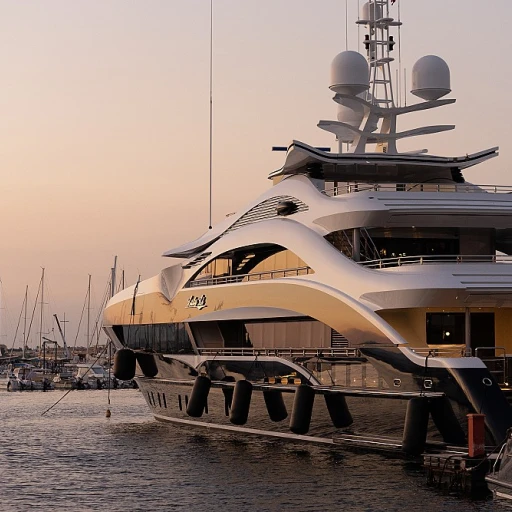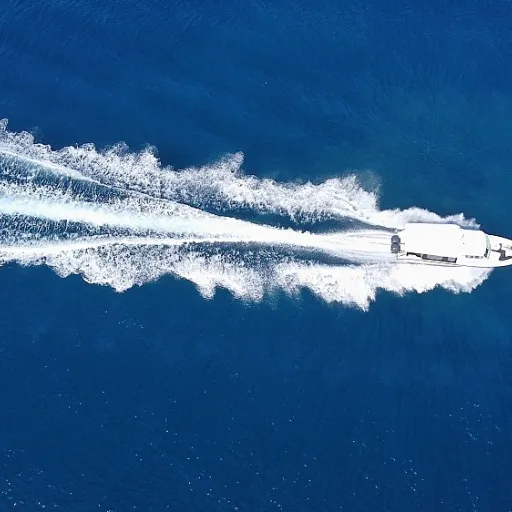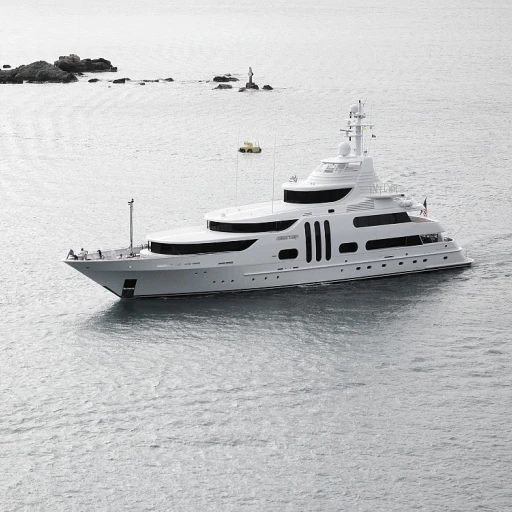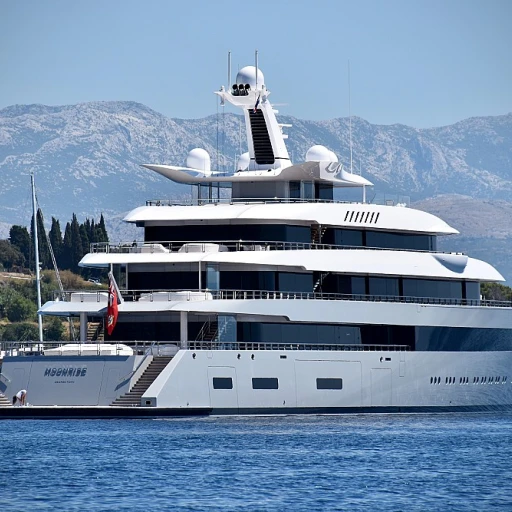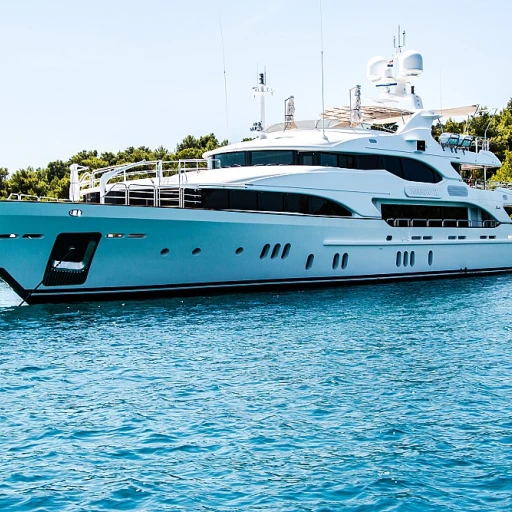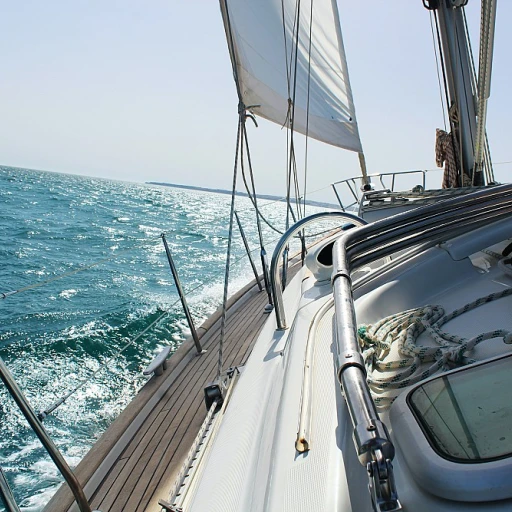
Understanding the Basics of a Boat Instrument Panel
Getting to Know Your Boat's Instrument Dashboard
The boat instrument panel, a pivotal component on any vessel, serves as the hub of the boat's electrical system and controls. Whether you are piloting a sleek pontoon or a robust marine vessel, understanding the essentials of the dash panel can significantly enhance your yachting experience.
On the dashboard, you'll find a variety of gauges, switches, and navigation lights, all crucial for a seamless boating adventure. Gauge panels typically display vital information like speed, fuel levels, and engine status. It's essential to familiarize yourself with these readings to monitor your boat’s performance effectively. For instance, a standard gauge set may include a speedometer, tachometer, and fuel gauge, all of which are critical during your voyage.
The switch panel is the control center for your boat’s electronics. From navigation lights to the bilge pump, having control at your fingertips ensures safe and efficient trips. Most panels feature a bus bar structure for efficient electricity distribution, making your instrument panel a product of engineering expertise.
When discussing color, boat instrument panels usually come in two main options: white and black. Each choice serves aesthetic and functional purposes, with white panels often favored for reduced heat absorption and black for enhanced visibility in sunlight.
The materials used in constructing these dash panels are equally crucial. Stainless steel and acrylic are popular due to their durability and resilience in marine environments. A well-maintained dash can last for many seasons, saving you from frequent panel replacement, which can be a costly affair considering the price of marine-grade materials.
To truly get the most out of your equipment, explore articles on enriching your yachting journey. One such resource discusses boat hatches and their role in enhancing yacht experiences, which complements the latest marine technologies seamlessly.
Technological Advancements in Instrument Panels
Innovation in Marine Electronics for the Modern Boater
In the ever-evolving world of marine technology, the boat instrument panel has undergone significant transformations. Today’s panels resemble a high-tech cockpit, integrating cutting-edge electronics to enhance boating experiences. From pontoon boats to luxury yachts, these advancements bring improved functionality and performance.
The incorporation of stainless steel and acrylic materials in panels ensures longevity, able to withstand harsh marine conditions. With the development of digital dash panels, the traditional analog gauge set is often replaced or complemented with advanced digital displays. This brings precision to data monitoring, allowing for real-time updates that are crucial during long trips.
Connectivity plays a key role in modern dashboards, boasting features like dual USB ports and Bluetooth capabilities to keep smartphones and tablets charged and connected. Moreover, the integration of a bus bar into the panel layout simplifies electrical management, allowing for seamless switching between functions without the hassle of tangled wires.
- Navigation Lights: Advanced panels offer automated options to manage lights, enhancing safety during night voyages.
- Switch Panels: Tailored switch panel designs allow for intuitive control over various boat components, from engine systems to entertainment.
The move towards digital panels also brings benefits like easy panel replacement and updates. This is essential given the quick pace of technological advancements in marine electronics, allowing boaters to stay current with the latest innovations. The price and product offerings can vary widely, providing options for every budget.
As marine instrumentation continues to advance, it’s essential for enthusiasts to stay ahead of trends and invest in tools that optimize their craft’s performance and safety. Reliability in marine panels is more than a luxury—it's an essential facet of modern boating.
Customization Options for Yacht Enthusiasts
Crafting Your Unique Marine Experience
Yacht enthusiasts know that personalization is key when it comes to standing out on the water. The dash panel of your boat is more than just a utility element—it's a canvas waiting to reflect your style and specific boating needs. With a wide array of customization options, the journey to crafting an ideal marine experience is as exciting as the voyage itself. Firstly, selecting the right panel material is paramount. Choices range from sleek acrylic finishes to robust stainless steel options, each offering durability and aesthetics to match your yacht's style. This decision impacts both the look and the longevity of your boat dash. Next, consider the innovative technologies integrated into your dash panels. High-tech electronics enhance functionality, boasting features like navigation lights and dual USB ports for onboard convenience. The addition of a comprehensive gauge set ensures that all critical metrics are readily available at a glance. These upgrades can elevate a standard gauge panel into a sophisticated command center. Switch panel customization is essential for seamless operation. Whether you're navigating a sleek yacht or coasting on a leisurely pontoon boat, a personalized boat switch arrangement can simplify handling. Configuring switches to prioritize your most-used functions, such as the bus bar for power distribution, can transform your boating experience. Color palettes play a crucial role in dash customization. Classic black and white dash panels serve as timeless choices, although more adventurous marine voyagers might opt for custom colors to make their dash a focal point. It’s also wise to keep in mind potential panel replacement needs when customizing. Stock panels may not always fit unique setups, so investing in panels that are easy to replace or adjust can save time and effort down the line. Finally, attention to detail extends to the choice of switch panels and the incorporation of items like a boat gauge or instrument panel. Each piece contributes to functionality and flair, ensuring your boating escapades are both efficient and glamorous. By integrating these options, yacht aficionados not only indulge in a vessel that's distinctive but also optimize the price to translate their vision into reality. To explore more ways to enhance your yacht's performance, consider diving into resources on crafting your unique marine experience by reading up on navigating the complexities of yacht fuel at Yacht Lifestyle.Maintenance and Troubleshooting Tips
Maintaining Your Boat's Instrument Panel for Longevity
When it comes to maintaining the boat's instrument panel, regular upkeep can make all the difference in prolonging the life of your marine electronics and ensuring optimal performance. Over time, exposure to harsh marine environments can cause wear and tear on your dash panels, including oxidation or corrosion on metal components such as stainless steel switches and bus bars. Monitoring your panel material, whether it's white acrylic or a classic black finish, is crucial. For pontoon boats, ensuring that the dash panel and gauge set are secure and intact takes priority, especially when vibrations and jolts are unavoidable on the water. Here's a streamlined checklist to guide your maintenance routine:- Regular Cleaning: Use non-abrasive cleaners to maintain dash panels, which helps to prevent the accumulation of salt and grime. This is particularly important for the durability of your gauge panels and boat switch mechanisms.
- Check Electrical Connections: Inspect switch panels for any loose wires or corrosion. It's always wise to ensure that all connections to navigation lights and dual USB outlets are solid, preventing power failures at sea.
- Test Gauges and Switches: Regularly test each gauge, switch, and electronics component to confirm accurate readings. A faulty boat dash gauge can lead to miscalculations or, even worse, accidents.
- Inspect for Water Damage: Moisture can infiltrate less secure panels, leading to electronics malfunction. Replacing damaged parts from stock or seeking panel replacement options might be necessary.
- Structural Integrity Assessments: Ensure the acrylic or stainless steel components of the dash and switch panels hold firm against wear and tear. Look for any cracks or loose fittings especially around the gauge set area.
- Adopt a Preventative Approach: Having a proactive approach not only helps maintain the aesthetic beauty of your marine dashboard but also prevents bigger expenses down the line.
Safety Features and Their Importance
Ensuring Safety with Essential Features
The significance of safety features within a boat instrument panel cannot be overstated. Ensuring a secure journey isn't just about sleek designs or advanced technology; it starts with reliable safety mechanisms integrated into the dash of your marine vessel.
For yacht enthusiasts, common safety features on the instrument panel include navigation lights and a well-organized switch panel for ease of access. A strategically placed boat switch ensures that essential functions can be activated swiftly in emergencies. High-quality stainless steel materials often encase these switches, providing durability against harsh marine conditions.
Equally critical is the gauge set that helps monitor the engine’s status, fuel levels, and speed. These gauges should be clear and easily readable, often coming in either a contrasting black or white background for adaptability to various lighting conditions. Using reliable gauge panel setups enhances visibility and keeps the captain informed at a glance.
In maintaining safety, investing in panel replacement when necessary ensures that worn-out switches or gauges do not compromise your journey's safety. The newer panels might feature dual USB ports for charging essential devices, making sure you're never caught in the dark without power for navigation aids or communication devices.
An increasing trend is the use of touchscreen dash panels that feature intuitive interfaces and integrated warning systems. These can translate complex data into simple alerts, allowing you to focus on steering pontoon boats or other vessels safely. While the price may be at a premium for top-of-the-line systems, the investment translates into peace of mind while traversing the waters.
You can also consider incorporating a bus bar to help manage electrical loads safely, minimizing the risk of overloading the circuits. This feature stands out in ensuring that all connected systems operate flawlessly, from navigation lights to essential electronics.
Ultimately, safety on the water involves both technologically advanced and fundamentally sound components coming together on your boat dash. With a commitment to maintenance and understanding the elements within your instrument panel, yacht enthusiasts can enjoy smooth and safe voyages.


